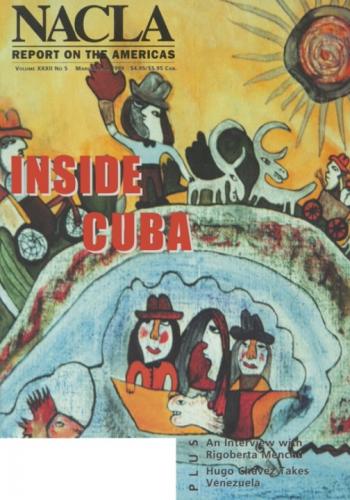Report
During the first three decades of the revolution, there was a gradual transformation of the Cuban population's values in favor of the revolutionary process, but transformation has come much faster than ever before in the last few years of economic and social crisis. The international shocks of the current decade have generated processes not before known in revolutionary Cuba.
Over the course of the 1990s Cuba has dramatically changed its trade, technology and investment partners, modified its institutions of foreign trade, opened the door to foreign investment, developed international tourism at a breathtaking pace, and changed, albeit not so dramatically, the product composition of its exports. These changes represent the beginnings of the country's reinsertion into the international economy, or to be more precise, into the capitalist world system.
There can be little doubt that Fidel Castro's regime has demonstrated a notable and, for many, surprising capacity for survival in the face of the economic crisis provoked by the collapse of the Soviet bloc. Not only the leaders of the Cuban exile community and the hawks in the U.S. government had anticipated Castro's fall.
This past January 5, in a major speech commemorating the fortieth anniversary of the founding of the National Revolutionary Police, Fidel Castro spoke of some of the criminal consequences of Cuba's dollarized economy.
The first time that I heard someone argue about the importance of civil society in Cuba was in 1984, during a talk by the well-known political scientist Rafael Hernández at the then-vigorous Center for the Study of the Americas. Hernández was one of the first to raise the issue, and was thus quite isolated.
As in other fields of scientific production, the development of the social sciences is intimately related to the specific problems faced by a given society, and the ways different groups within that society—particularly dominant groups—respond to those problems. In Cuba, dramatic events on the international scene in the 1990s have given rise to new social, economic and political problems which have made a deep impact on the Cuban social science community.
It was a far cry from the opening even many Republican moderates had urged, but Bill Clinton's announcement in early January of some small changes in U.S. policy toward Cuba may have provided the most significant positive development in that policy since the 1970s. While the particular changes were modest, they created wedges in the embargo that had seemed iron-clad when the restrictive Helms-Burton Bill became law in 1996.

